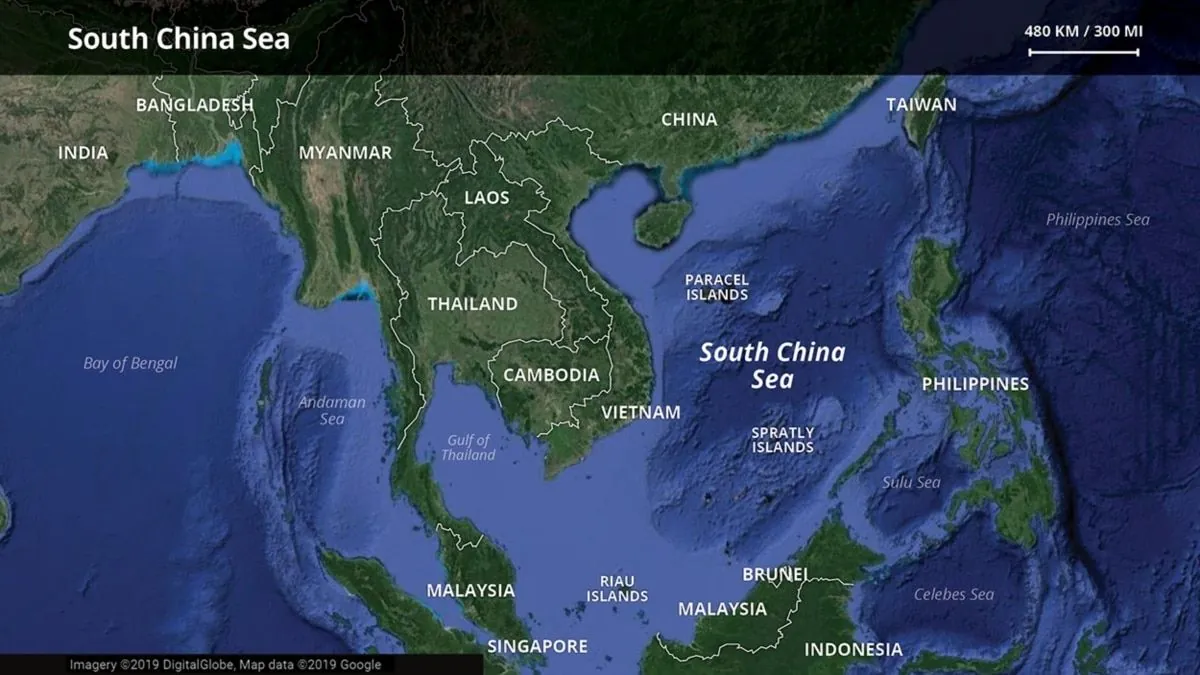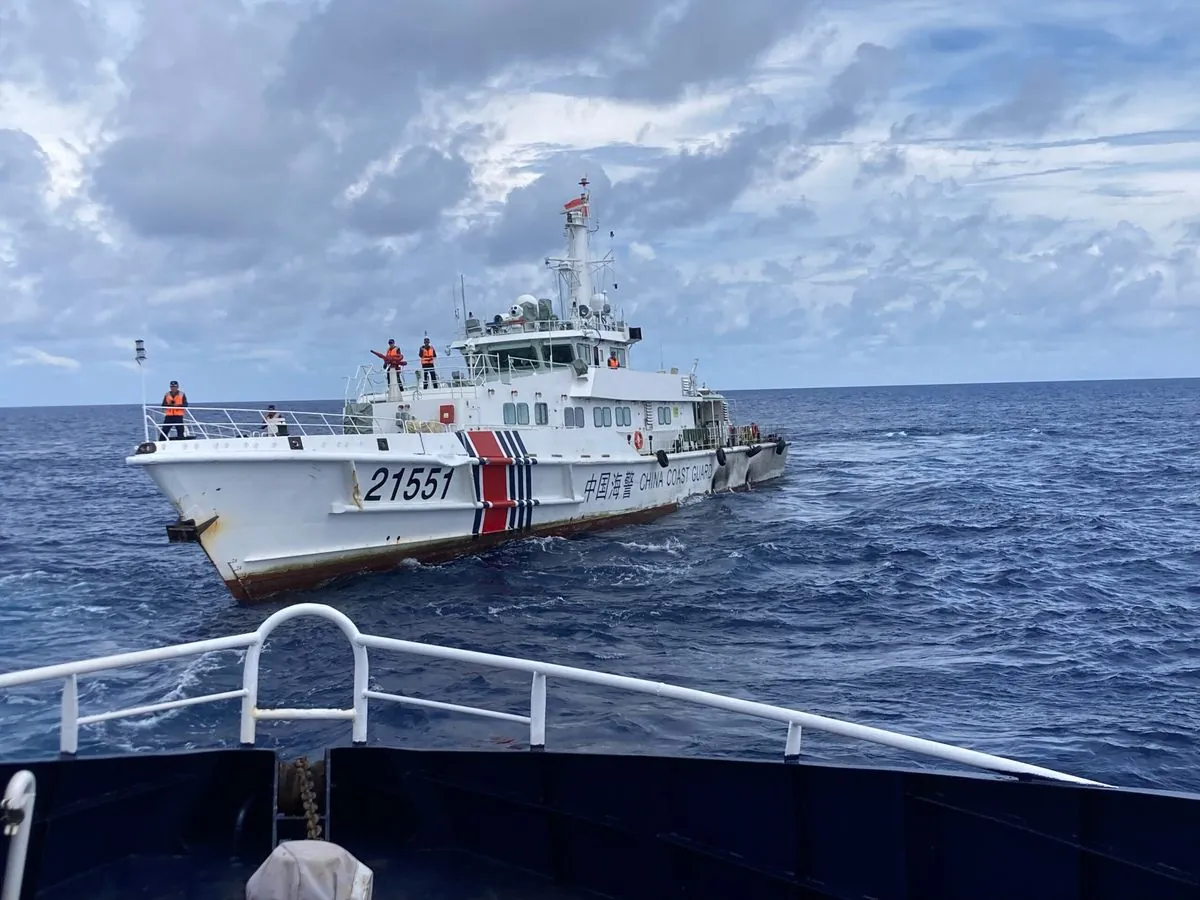China Protests Japanese Envoy's Comments on South China Sea Dispute
China's embassy in the Philippines has issued a diplomatic protest against Japan's ambassador over remarks about Chinese activity near Sabina Shoal in the South China Sea, escalating regional tensions.

In a recent development highlighting the ongoing tensions in the South China Sea, China's diplomatic mission in the Philippines has formally protested against comments made by Japan's ambassador regarding Chinese activities near Sabina Shoal. This incident, occurring on August 29, 2024, underscores the complex geopolitical dynamics in the region.
The Chinese embassy issued a diplomatic note to its Japanese counterpart, expressing strong disapproval of what it termed "irresponsible" remarks by the Japanese ambassador. The statement from the Chinese embassy asserted that the ambassador's comments demonstrated a lack of factual understanding and included baseless accusations against China.
The controversy stems from a social media post made by the Japanese ambassador on August 26, 2024. The diplomat shared a video depicting a Chinese coastguard vessel in the vicinity of Sabina Shoal, describing it as "another unacceptable development" in the area. This action prompted a swift and stern response from Chinese officials.

Sabina Shoal, located in the Spratly Islands, is part of a larger territorial dispute involving multiple nations in the South China Sea. This marginal sea of the Western Pacific Ocean has been a focal point of international contention, with overlapping claims from China, Vietnam, the Philippines, Taiwan, Malaysia, and Brunei.
China's assertion of sovereignty over nearly the entire South China Sea, based on its "nine-dash line" map, has been a source of regional friction. In 2016, an international tribunal in The Hague ruled against China's expansive claims, a decision that Beijing has not recognized.
The South China Sea's strategic importance cannot be overstated. It serves as a critical shipping route, with approximately one-third of global maritime traffic passing through its waters. Additionally, the area is rich in natural resources, including significant oil and gas reserves, further intensifying the competition for control.
While Japan is not a direct claimant in the South China Sea disputes, it maintains strategic interests in the region and has been vocal about maritime security issues. The Japanese ambassador's comments reflect broader international concerns about China's activities in disputed waters.
The Chinese Coast Guard, recognized as the world's largest coast guard fleet, has been increasingly active in asserting Beijing's claims in the South China Sea. This has led to numerous encounters with vessels from other nations and raised concerns about potential escalation of conflicts.
Efforts to manage tensions in the region have included diplomatic initiatives such as the Association of Southeast Asian Nations (ASEAN) working on a Code of Conduct for the South China Sea. However, progress on this front has been slow, and incidents like the recent diplomatic protest highlight the challenges in achieving regional consensus.
As nations continue to assert their claims and monitor activities in the disputed areas, the use of satellite imagery and international freedom of navigation operations have become common practices. These actions, while intended to uphold maritime rights, often lead to increased tensions and diplomatic confrontations.
The ongoing dispute over Sabina Shoal and the broader South China Sea region remains a complex issue with significant implications for regional stability and international maritime law. As countries navigate these choppy diplomatic waters, the international community watches closely, hoping for peaceful resolutions to these long-standing conflicts.


































